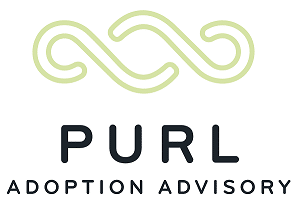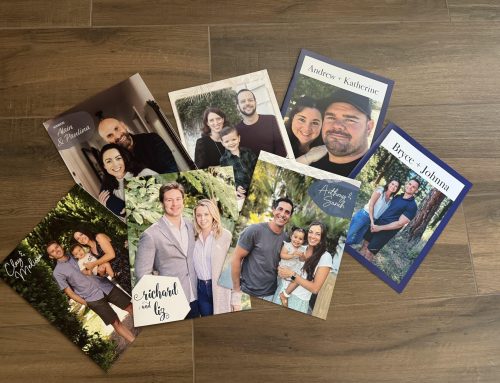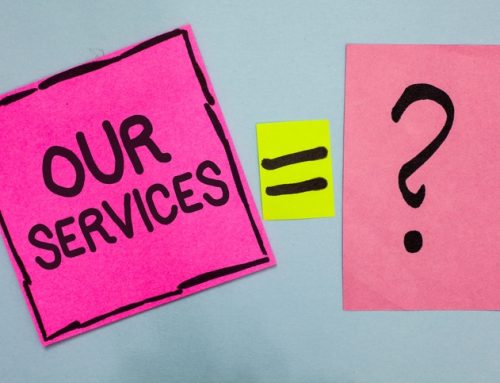
Did you know that there are typically two types of adoption available in domestic infant adoption: agency adoptions and direct placement adoptions (often referred to as private or independent adoptions)? Do you understand when you might use one versus the other? Did you know that some states allow direct placement adoptions and some do not? Below we will describe each in more depth.
Agency Adoptions: An agency adoption involves a child being placed for adoption through a licensed child-placing agency. In these cases, an expectant parent (or parents) signs consents to the adoption to the licensed adoption agency, and the legal custody of that child is held by the agency until the agency consents to the adoptive family before finalization. In most agency adoptions, the agency is also matching the expectant parents with the adoptive parents and likely charging an “agency fee”. Note that in some states, an agency has to be involved in the adoption plan even if the match was not made by an agency, so keep that in mind if you are living in what is known as an “agency state” (e.g. Connecticut, Massachusetts, Colorado, New Mexico). This type of adoption is the only type allowed in certain states and is typically required in order for the child to receive certain state subsidies that might be available to a child being adopted.
Note that in agency adoption situations, the relationship you maintain with the agency during your adoption is REALLY important, as they are the one that has custody before finalization. We always caution our Purl families to maintain a positive relationship with their adoption professionals throughout their journey, even if there may be things that are difficult or frustrating that arise during the process. However, the agency will have the ultimate say in these cases, however odd that may be, so maintaining a positive relationship and fulfilling all obligations you committed to during your adoption journey is really important. We always encourage our Purl Families to contact us if something frustrating happens with your agency, so we can help you figure out how to proceed while still maintaining a positive relationship.
Direct Placement Adoptions (often called private or independent adoptions): Direct placement adoptions involve a direct placement between the birth parent(s) and the adoptive parent(s), without the use of an agency and typically without agency fees. In these cases, the expectant parents likely identify adoptive parents on their own through a prospective adoptive parent(s) adoption outreach, or through an adoption attorney, where the law allows. In these adoptions, the expectant parent(s) sign consents directly to the specific adoptive parent(s) they are placing the child with. This type of adoption is not possible in all states. In fact, some states require that an adoption agency be involved in every adoption, even if they did not help match the expectant parent(s) with the prospective adoptive parent(s). In other words, even if the birth mother and the prospective adoptive parent or parents found each other on their own through adoption outreach, in some states an adoption agency will still have to be involved, although the fees are typically less than they would be where the agency has done the matching (those are often referred to as “identified adoptions”).
Regardless which type of adoption you pursue, it is imperative that you have an adoption attorney help you understand the law in your state or the states you plan to operate in BEFORE you begin your adoption journey. At Purl, we connect our prospective adoptive families to adoption professionals in many different states and make sure they understand the differences between the laws in those states. If you don’t use a professional like Purl to identify ethical and experienced adoption professionals, please make sure you are contacting an attorney who is part of the Academy of Adoption and Assisted Reproduction Attorneys (“AAAA”, click that link to search for one in your state). Please understand that there is a BIG difference between family law and adoption law and if someone is experienced in family law they may not necessarily understand adoption law. All the fellows in AAAA are experienced adoption attorneys and should be able to help you understand what is legal and ethical as far as how you can locate an expectant mother considering adoption and what expenses can be paid in an adoption and can help guide you to other reputable professionals that might be necessary in your state.
If you want guidance on how to navigate your adoption journey, please click here and complete the form to schedule a free consultation about our Purl Services.

Did you know that there are typically two types of adoption available in domestic infant adoption: agency adoptions and direct placement adoptions (often referred to as private or independent adoptions)? Do you understand when you might use one versus the other? Did you know that some states allow direct placement adoptions and some do not? Below we will describe each in more depth.
Agency Adoptions: An agency adoption involves a child being placed for adoption through a licensed child-placing agency. In these cases, an expectant parent (or parents) signs consents to the adoption to the licensed adoption agency, and the legal custody of that child is held by the agency until the agency consents to the adoptive family before finalization. In most agency adoptions, the agency is also matching the expectant parents with the adoptive parents and likely charging an “agency fee”. Note that in some states, an agency has to be involved in the adoption plan even if the match was not made by an agency, so keep that in mind if you are living in what is known as an “agency state” (e.g. Connecticut, Massachusetts, Colorado, New Mexico). This type of adoption is the only type allowed in certain states and is typically required in order for the child to receive certain state subsidies that might be available to a child being adopted.
Note that in agency adoption situations, the relationship you maintain with the agency during your adoption is REALLY important, as they are the one that has custody before finalization. We always caution our Purl families to maintain a positive relationship with their adoption professionals throughout their journey, even if there may be things that are difficult or frustrating that arise during the process. However, the agency will have the ultimate say in these cases, however odd that may be, so maintaining a positive relationship and fulfilling all obligations you committed to during your adoption journey is really important. We always encourage our Purl Families to contact us if something frustrating happens with your agency, so we can help you figure out how to proceed while still maintaining a positive relationship.
Direct Placement Adoptions (often called private or independent adoptions): Direct placement adoptions involve a direct placement between the birth parent(s) and the adoptive parent(s), without the use of an agency and typically without agency fees. In these cases, the expectant parents likely identify adoptive parents on their own through a prospective adoptive parent(s) adoption outreach, or through an adoption attorney, where the law allows. In these adoptions, the expectant parent(s) sign consents directly to the specific adoptive parent(s) they are placing the child with. This type of adoption is not possible in all states. In fact, some states require that an adoption agency be involved in every adoption, even if they did not help match the expectant parent(s) with the prospective adoptive parent(s). In other words, even if the birth mother and the prospective adoptive parent or parents found each other on their own through adoption outreach, in some states an adoption agency will still have to be involved, although the fees are typically less than they would be where the agency has done the matching (those are often referred to as “identified adoptions”).
Regardless which type of adoption you pursue, it is imperative that you have an adoption attorney help you understand the law in your state or the states you plan to operate in BEFORE you begin your adoption journey. At Purl, we connect our prospective adoptive families to adoption professionals in many different states and make sure they understand the differences between the laws in those states. If you don’t use a professional like Purl to identify ethical and experienced adoption professionals, please make sure you are contacting an attorney who is part of the Academy of Adoption and Assisted Reproduction Attorneys (“AAAA”, click that link to search for one in your state). Please understand that there is a BIG difference between family law and adoption law and if someone is experienced in family law they may not necessarily understand adoption law. All the fellows in AAAA are experienced adoption attorneys and should be able to help you understand what is legal and ethical as far as how you can locate an expectant mother considering adoption and what expenses can be paid in an adoption and can help guide you to other reputable professionals that might be necessary in your state.
If you want guidance on how to navigate your adoption journey, please click here and complete the form to schedule a free consultation about our Purl Services.



